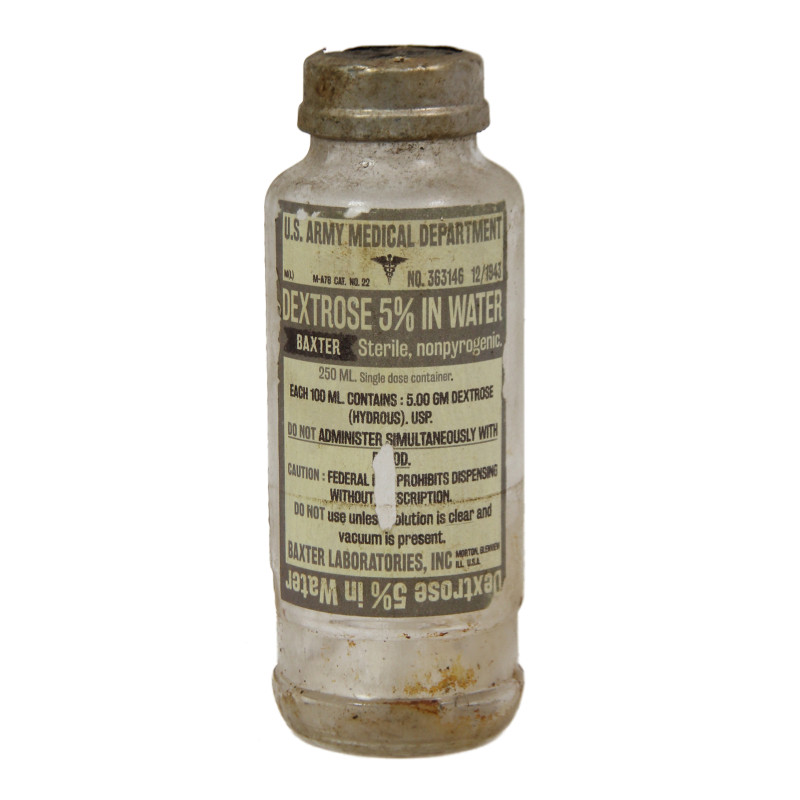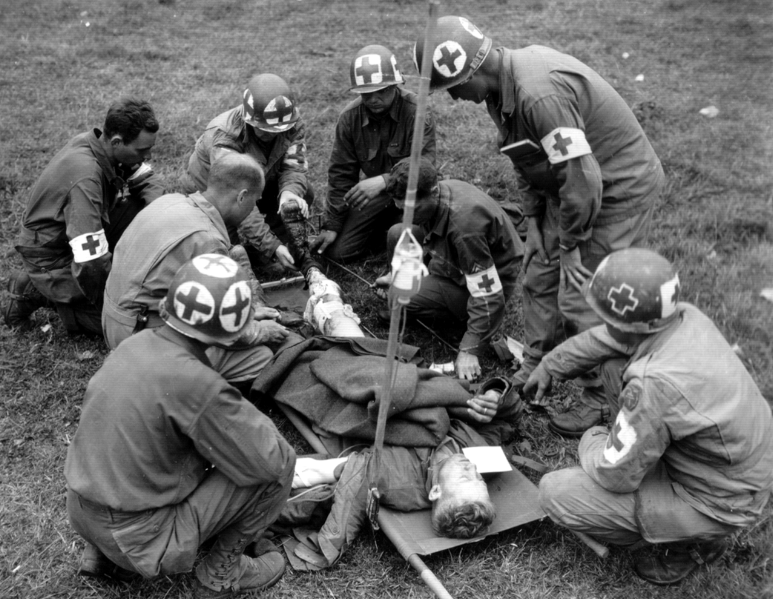










Rare genuine WWII US Army Medical Department glass bottle, intended for containing a dextrose 5% solution for injection (perfusion).
Manufactured by Baxter Laboratories, Inc. and dated December 1943. Capacity: 250ml.
Quite good overall condition; retains its original stopper and label.
Empty.

What is dextrose 5% in water?
Dextrose is a form of glucose (sugar). Dextrose 5% in water is injected into a vein through an IV to replace lost fluids and provide carbohydrates to the body.
Dextrose 5% in water is used to treat low blood sugar (hypoglycemia), insulin shock, or dehydration (fluid loss). Dextrose 5% in water is also given for nutritional support to patients who are unable to eat because of illness, injury, or other medical condition.
Dextrose 5% in water is sometimes used as a diluent (liquid) for preparing injectable medication in an IV bag. A diluent provides a large amount of fluid in which to dilute a small amount of medicine. The diluent helps carry the medicine into your bloodstream through the IV. This helps your caregivers inject the medicine slowly and more safely into your body.
You might also like